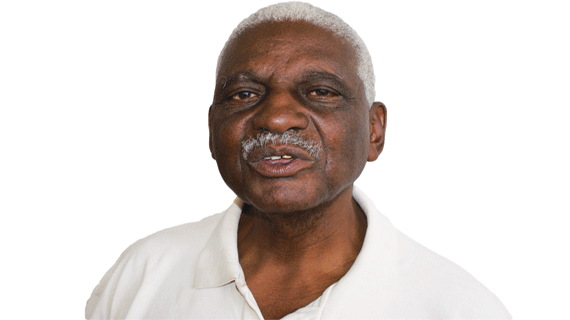
IN OUR third article on the common mistakes in Ndebele we repeated some of those that have been dealt with before.
We explained that our reason was to emphasize the correct forms as well as to explain why certain expressions were wrong. For example we have made our hobby —horse the common error ukubakwazi.
This is a common error which occurs with annoying frequency.
Historically it is a recent development. It did not exist significantly before the 20 hundreds .
Someone may say Ngifuna ukubakwazi ukuthi utshelwe ngubani ukuthi ukhulume amanyala la. So far nobody has been able to explain where the vowel ba (ukubakwazi) comes from. We have been at pains to explain that the noun is uku- bingelela, ukudla , etc.
In the case of vowel verb stems: -ala > ukwala, – enza > ukwenza, – ona > ukona, -azi > ukwazi and many more. How does the ba come in only azi? IsiNdebele sithi: Bazangibona ukuze bakwazi ukuthi ngingubani hatshi ukuze babekwazi. We look forward to the day when we will celebrate the end of this error.
Another common error concerns the name of our language, Ndebele. The error arises from the prefix isi which goes before the name of the language. Do we write it as Isindebele or iSindebele or iSiNdebele or Sindebele or isiNdebele? This error is not very common, but it does occur with some who think they think.
The point is this. The prefix isi goes before (infront of ) any language such as isikhiwa , isishona , isiswahili or any language.
- Chamisa under fire over US$120K donation
- Mavhunga puts DeMbare into Chibuku quarterfinals
- Pension funds bet on Cabora Bassa oilfields
- Councils defy govt fire tender directive
Keep Reading
The isi is a Ndebele prefix and applies only when we designate the language in Ndebele. We cannot say: “He spoke to me in isi – English or in isi -Afrikaans. It is equally awkward to say: “I did not understand her because she spoke to me in isiFrench”.
The languages are French, Creole, Chewa, Luvale, Xhosa, Swazi, Ndebele , Zulu etc, Speaking or writing in Ndebele (not in isiNdebele or in Sindebele) we say that the language is: isiNdebele. The capital letter is on the initial consonant of the particular language.
That is our justification for talking or writing about Ndebele (not about iSindebele or some other funny designation) Now back to some common language errors. Consider this sentence which obviously is wrong: Cupha lapha uzwe ubunandi bamasi kaNakaJele.
What is wrong in this sentence? It is the word ubunandi. This is a noun derived from the adjective mnandi. The noun suffix is ubu which is added to the adjective stem mnandi is ubu+mnandi= ubumnandi. Therefore, uzwe ubunandi bamasi.
The following sentences are correct.
- Usuhlezi kuhle; yibo ubumnandi bemfundo.
- Akungiziswe fethu ubumnandi bamahewu la.
The same mistake is usually made about the adjective mnyama: Izulu elizayo liqhuba ubumnyama obesabekayo. The noun is ubu+mnyama = ubumnyama. Hence ubumnyama obunje kangikaze ngibubone.
Compare this to all the adjective stems: ukhulu > ubu+ khulu = ubukhulu, khali= ubukhali, -de=ubude, -mhlophe= ubumhlophe as in ubumhlophe bayo bufana lobengilosi.
Now look at the following sentences and remember what we have said in this series . Which of them would you pass as correct?
- Wangiwonela umsebenzi owawumuhle.
- Ubefuna imali yakhe ngahle ngambisela yonke.
- Lamhla ngizabakwazi ukuthi ubaba wafa njani .
- Khangela fethu ubuhlophe benwele zexhegu leliyana.
- Angangayilisa ukuhamba ngizxamzondela.
Two words ulimi and ulwandle from their plural in a special ways: ulimi > indimi and ulwandle > izilwandle.
There is no such combination as nl in Ndebele.
Therefore words like inlwandle or izinlwandle do not exist. We say: Bawela izilwandle baya emazweni. Wonke mamzwe omhlaba ahonqolozwe yizilwandle ezinkulu lezincinyane.
The noun ulimi takes the plural indimi or izilimi. Izindimi zamakhiwa ungathi ziphuma ngamakhala. Zonke izindimi zabansundu zilukhuni kwabamhlophe.
You can easily say: Kangizazi zonke izilimi zama -Arabhu. Esontweni yakibo bakhuluma ngezilimi/ngezindimi. We will continue . . .










